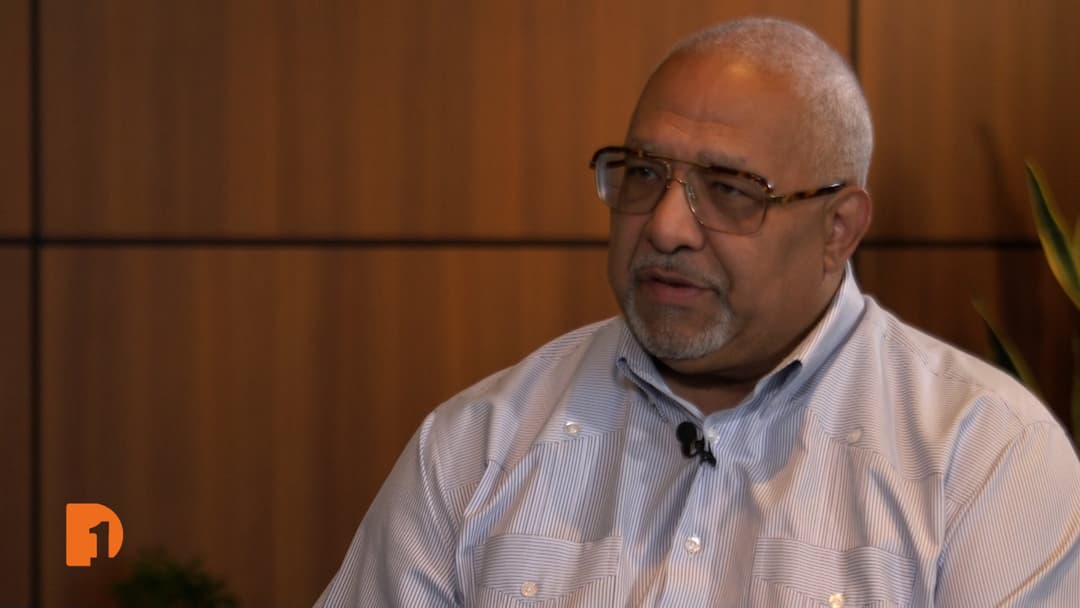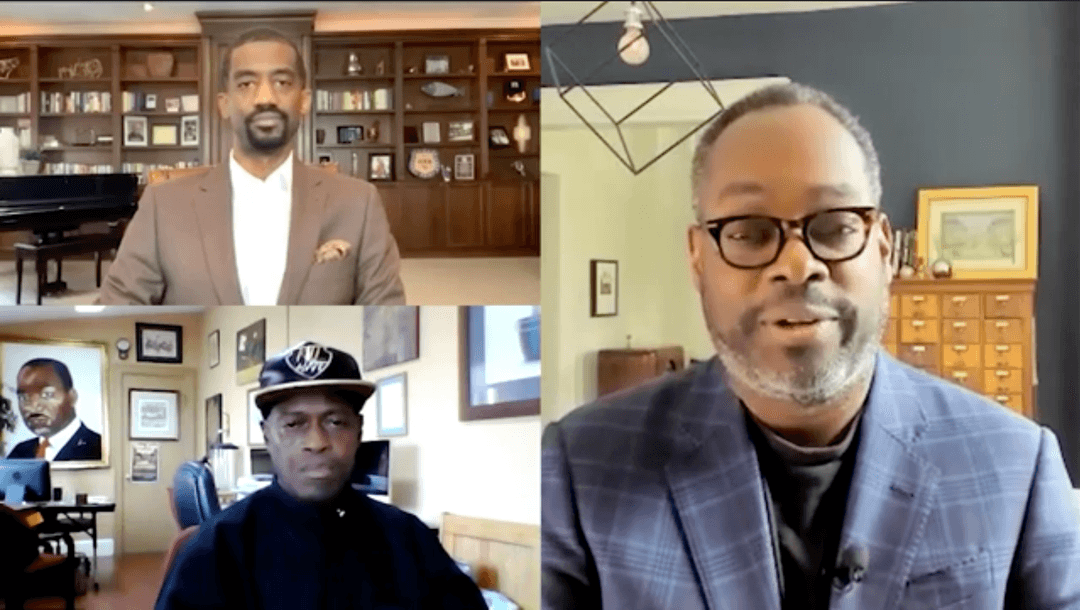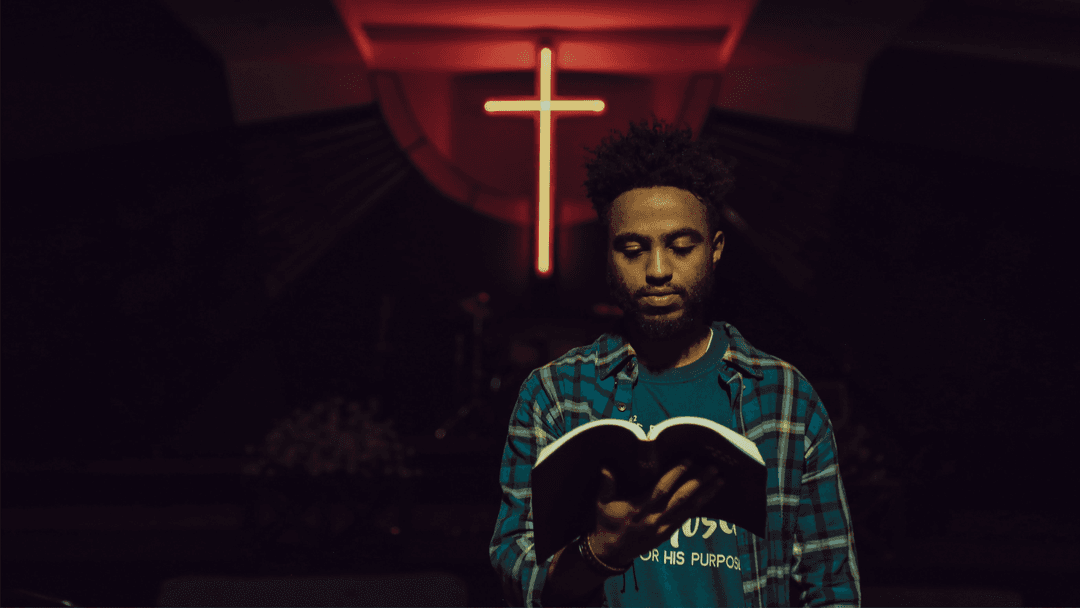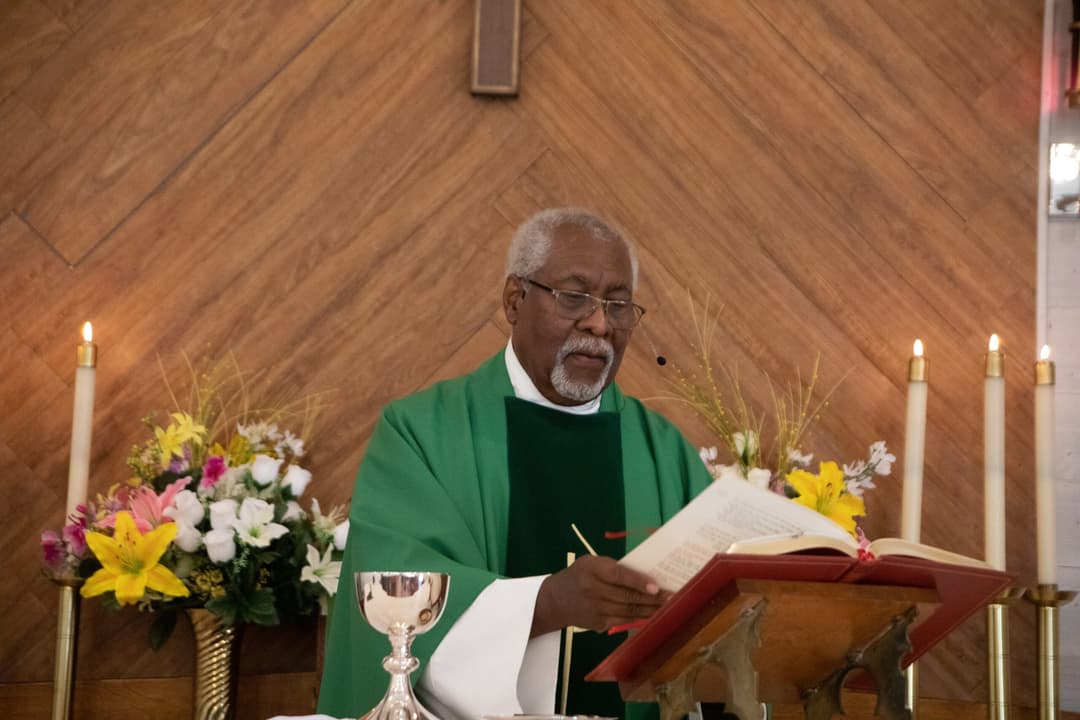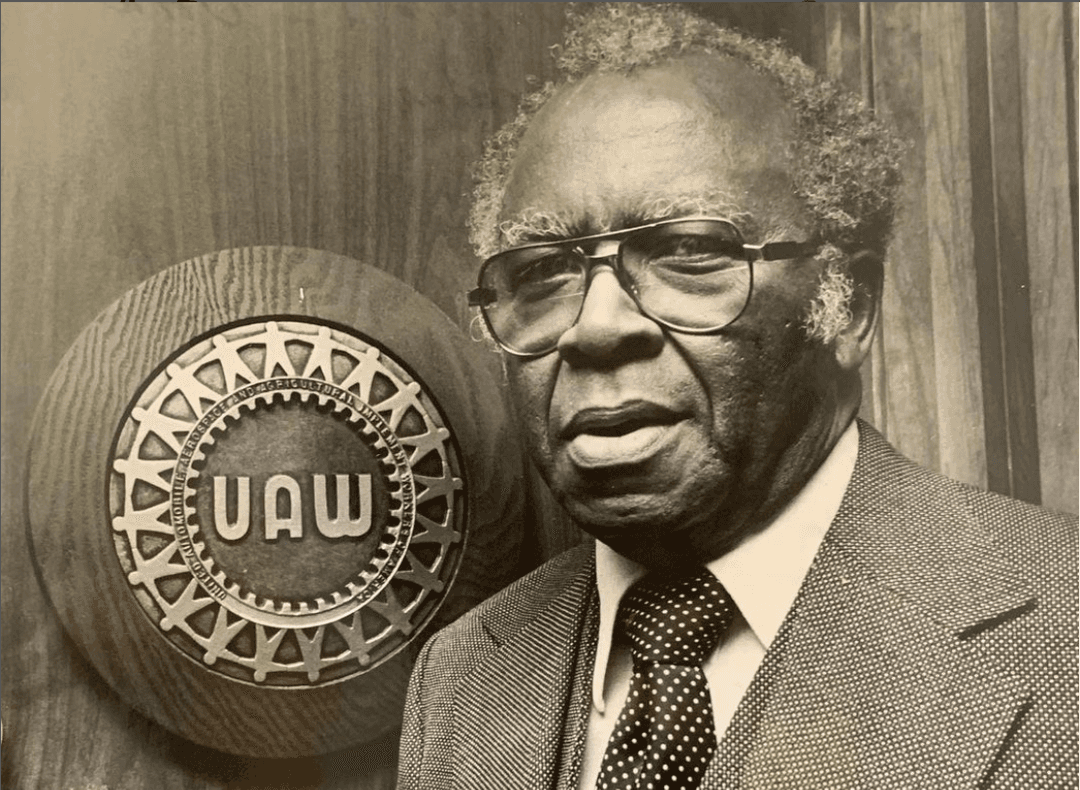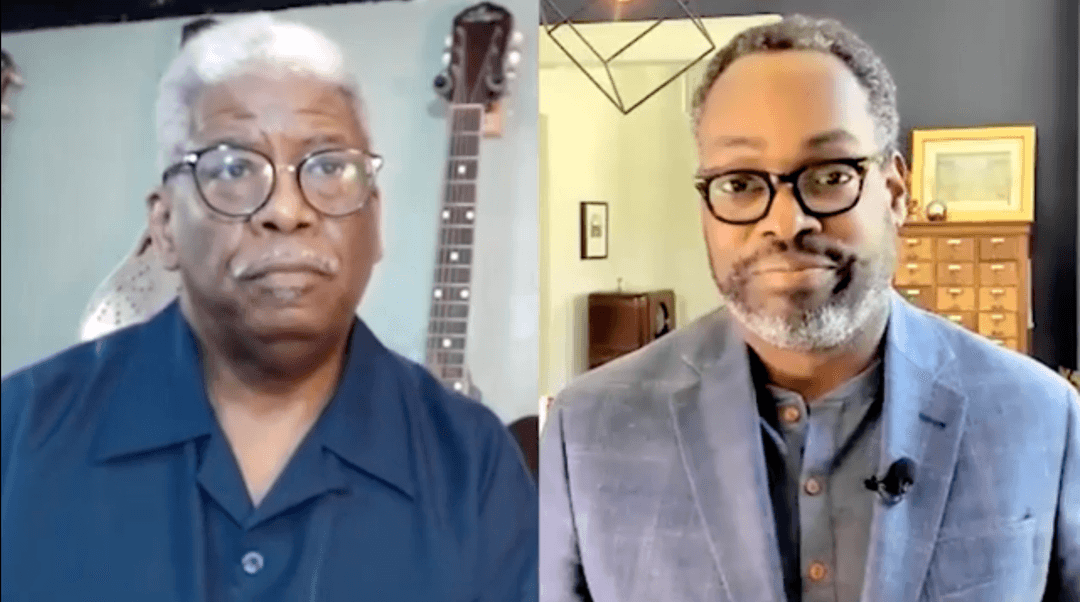‘The Black Church’ Documentary Director Discusses Impact, Importance of Series
Feb 22, 2022
American Black Journal host Stephen Henderson takes a look back at what inspired the Black Church in Detroit series, in collaboration with the Ecumenical Theological Seminary and the Charles H. Wright Museum of African American History to begin one year ago: Dr. Henry Louis Gates, Jr.’s Black Church documentary, “The Black Church: This is Our Story, This is Our Song,” which explores the 400-year history of the Black Church.
Stephen sits down with The Black Church documentary producer and director Stacey Holman to hear her perspectives on the series’ impact and the importance of the church in the Black community.
Full Transcript:
Stephen Henderson: Start with how you came up with the idea for this series, “The Black Church”. In some ways, it’s a very obvious part of African-American life, but it’s something I think we kind of take for granted; it’s always there. It’s part of our lives from birth in our community. We don’t often stop to think about the history and why it’s important and how it’s become so important.
Stacey Holman, Series Producer & Director, “The Black Church: This Is Our Story, This Is Our Song”: Well, this is the grandchild of Henry Louis Gates, who I will probably intermittently call Skip, I go between those two, and he had written a treatment and had this idea of doing a series on the black church. And I was, I had the privilege of being brought on as a series producer and as well as a director for the series. And it was my role to really help steer his vision into a 4-hour program, to really talk about the breadth and the width of the black church, particularly in the continent of America, specifically. Because we know that the religion and black church can kind of extend, you know, across the borders, but we really wanted to focus on what the institution was here, built by black people.
Stephen Henderson: I want to talk a little about the arc of the narrative here. With regard to the black church, of course, it plays a very pivotal role in early America, and for African Americans, it plays a very particular role. I think it changes over time, of course, because history changes over time. But talk about telling that story and making sure that, you know, that you can be faithful to the idea that, even though these things change, and even though it looks different today than it did 200 years ago or 400 years ago, that there’s this kind of continuity, I guess, in the role that it plays in the importance that it has for us as a community.
Stacey Holman: I mean, what you said at the top of the hour or top of the interview, is very true, like we all have a root in the black church. Whether we continue to have that grow in our life, that’s total over time. And I think that’s just the ongoing thread and the connective tissue of the story. Whether it was our grandmothers or our grandfathers forcing us to go to church, or whether it was just our friends whose parent was a pastor, and so, we knew we had to go to church or we could hang out that Sunday afternoon.
So, I think for us, and I hope I’m kind of answering your question, is that just really finding that, you know, that personal element and pulling on that so that we can then just really develop that story and show the emotional as well as some of the hard stuff. I mean, it’s not a complete all everything is rosy story; the black church is complicated. There’s still a lot of stuff that we’re still struggling with today that necessarily wasn’t at the forefront back then, but that also shows the evolution of it and just how it’s willing to grow and willing to just take on some of those conversations.
Stephen Henderson: I’m curious also about the reaction and feedback that you’ve gotten from people about this portrayal of such an important part of African-American life.
Stacey Holman: Overall, it’s been very positive, which we’re very thankful for. A lot of people have definitely, you know, had not been at the church, in the church, it really triggered them and just jogged some really pleasant memories. For other people, it was just like confirmation of just like, yeah, that was that was my experience, that’s what I knew, that’s what I understood. Then of course, there are, you know, not everything is perfect, as I said, and we did have one of the things, you know, we should have covered this, and that’s always a challenge that you have in telling a story. It’s 400 years, you know, essentially 400 years in four hours.
And we also too, got a little bit of pushback from a lot of Black Catholics because they felt, certain individuals, I won’t say they as a whole, but individuals felt that, you know, that was one story we didn’t tell. I joke with my colleague and the other directors, Shayla Harris, who’s actually from Detroit, she was our resident Black Catholic, cause she did grow up Catholic. So I was like, well, we didn’t really cover the story due to time, but also to due to the fact that we were focused on Black Churches and Institutions that were independent of whites.
Stephen Henderson: Well, it is amazing work, and I think we’re all really grateful that you did it. Stacey Holman, thanks so much for joining us on American Black Journal.
Stacey Holman: Thank you so much, Stephen. I just want to do a quick plug, If people still want to continue to watch it. It’s on-demand and it’s also streaming services on Amazon, and you can of course get the DVD. So, but thank you so much, It was a pleasure.
Stephen Henderson: We kicked off our “Black Church in Detroit” series with a show about the historic role of the church in the fight for racial and social justice. And later, we continue the conversation by focusing on the church as a center for change in the community; take a look.
Stephen Henderson: Reverend Williams, I’m going to start with you. Activism is, I think, for you hand-in-hand with the pastorship of your church and so much of what you do. So many of the reasons that people know you, not just here in Detroit, but around the country, are about activism. So I want to start with you talking about that marriage between the church, the black church in particular, and activism that’s focused on social and racial justice.
Rev. Charles Williams II, Pastor, Historic King Solomon Baptist Church: Yeah. You know, look, the black church birthed Black Lives Matter, birthed activism. It has been the mantra that we have held since we organized the African Methodist Episcopal Church. Further, since we organized our resources at the First Baptist Church of Savannah, Georgia, oldest institutions that blacks have ever owned, not only in the sense that we were protesting or picketing, but we, at that time, we were providing. At that time, we were opening up our churches for Underground Railroad. This is what the fabric of what we’ve been for black people since the inception of the Black Church, the historic black church, and it’s what we plan to continue to be.
Stephen Henderson: Pastor Barry, I know from your church that, that activism takes on a very specific role in your community. It takes on a very specific role with young people in your community. Talk about what that looks like.
Rev. Barry Randolph, Pastor, Church Of The Messiah: Well, one of the reasons why the church has been so successful, is because we combine your purpose and your activism with your spirituality. One of the things that have been quite successful is the fact that we let everybody know that on so many different levels, Jesus Christ and his disciples and a lot of people in the Bible were actually activists. They were standing up for what was right, they was standing up against the status quo, they were standing up in the face of evil, and they were letting people know that with God, all things are possible. And we, as the people of God, we have a role to play in manifesting that in this world. So, we have a particular role. So, our young people in particular, they look for their purpose in life, and part of that is to stand up for the right thing and we give them the opportunity to be able to do that.
Stephen Henderson: Yeah. Reverend Constance, what does this look like at fellowship?
Rev. Dr. Constance Simon, Associate Minister, Christian Education Fellowship Chapel: You know, when I thought about activism, I had to take it from an academic standpoint, of course. I am at Fellowship Chapel, which is a very active church, ETS is ecumenical but social justice oriented. So, when I looked at activism and when I teach it in my African American religious black religious studies course, I talk about it from a historical perspective. We came from Africa, and I mean we were enslaved, we come to America.
And even within that transition, we have held on to what has been activism. I see activism holistically, in that all, of our things that we do in terms of the black church. It’s not just the religion, it’s not just understanding the Bible, it’s dealing with every phase of every black person’s need. So even when the slaves would lead the master’s church and go to the Hush Harbor, and remember they did not take that black, there’s a black Bible, I don’t know if you’ve ever heard about it, the slave Bible, they’ve taken that, they didn’t take that.
They sat down and they talked about how they were going to be active in terms of helping everybody that was part of that slave group through songs, because they sang in the fields to let people know they were going to be actively leaving, you know, for for freedom. They preached, they talked about the things that people need, and historically that has been the activism in Black Church.
Stephen Henderson: What role are you called to play these days? Bishop Ellis, I’ll start with you.
Bishop Charles H. Ellis III, Greater Grace Temple: Well, you know, I’m carrying on of 25 years now, legacy from my father who pastor for 34 years, and he was the first to move beyond the walls of the church, in terms of a daycare center, Montessori daycare center, and then a Christian school that went from kindergarten to the 8th grade. And then, apartments and duplexes that allow people to live in affordable housing. And then, the Credit Union, Federal Credit Union, Federally Chartered Credit Union, and that was like, Wow, we’re a bank now, you know?
And so, you know, he was the one to see beyond the church and to see that people have more than spiritual needs, but they had natural needs. And it kind of was a transition because before he passed, I was one that wrote the grant that received $5.3 million from HUD, to Ellis Manor, which is here on the new site. So it was kind of like a transition, and two years after we moved the first residents in, in 94 my father passed; he made his transition.
And of course, five years later, in 2002, we moved into this facility, six years later, I should say. So, I’m just carrying on that legacy. I used to brag here, in a good way, that we did more ministry here. I had our present site outside of the church during the summer months than we did inside of the church. Now we’re pretty much doing almost everything outside of the church.
Stephen Henderson: Reverend Adams?
Rev. Charles Christian Adams, Hartford Memorial Baptist Church: Yes, and it’s really divine providence that we would be on the show together, Bishop Ellis and myself, because his father and my father were contemporaries and colleagues and very good friends, and they did a lot of the same work. Housing, he developed, Bishop Ellis was a forerunner to that in a lot of housing development, and we also continue that tradition, and we just completed a senior village, right, adjacent almost to the Northwestern Activity Center.
A 15.5-million-dollar project cooperatively, with Presbyterian Villages of Michigan, providing apartments style housing, and cottage style housing, right there for those who did not want to live in the suburbs, but wanted to have quality housing in the city of Detroit. Also, we have tried to ignite employment opportunities through economic development. Because of our forerunners, they laid the foundation; it’s an ethos that we are walking in. Almost like the scripture that says, “We live, move and have our being in God”, we live, move and have our being in this idea that church goes beyond Sunday morning.
Stay Connected
Subscribe to Detroit PBS YouTube Channel & Don’t miss American Black Journal on Tuesday at 7:30 p.m. and Sunday at 9:30 a.m. on Detroit PBS, WTVS-Channel 56.
Catch the daily conversations on our website, Facebook, Twitter, and Instagram @amblackjournal.
Related Posts
Leave a Reply
Your email address will not be published. Required fields are marked*


